第28章 NILUSHKA(2)
So poor, for that matter, is the suburb that never do even beggars resort thither, save when drunk. No, the only creatures which resort thither are dogs which subsist no one knows how as predatorily they roam from court to court with tails tucked between their flanks, and bloodless tongues hanging down, and legs ever prepared, on sighting a human being, to bolt into the ravine, or to let down their owners upon subservient bellies in expectation of a probable kick or curse.
In short, every cranny of every cot in the place, with the grimy panes of their windows, and their lathed roofs overgrown with velvety moss, breathes forth the universal, deadly hopelessness induced by Russia's crushing poverty.
In the Tolmachikhans' backyards grow only alders, elders, and weeds. Everywhere docks thrust up heads through cracks in the fences to catch at the legs or the skirts of passers-by, while masses of nettles squeeze their way under fences to sting little children. Apropos, the latter are all thin and hungry, in the highest degree quarrelsome, and addicted to prolonged lamentation. Also, each spring sees a certain proportion of their number carried off by diphtheria, while scarlatina and measles are as epidemic among them as is typhoid among their elders.
Thus the sounds of life most to be heard throughout the suburb are the sounds either of weeping or of mad cursing. In general, however, life in Tolmachikha is lived quietly and lethargically.
So much is this the case that in spring even the cats forbear to squall save in crushed and subdued accents. The only local person to sing is Felitzata; and even she does so only when she is drunk. It may be said that Felitzata is a saucy, cunning procuress, and does her singing in a peculiarly thick and rasping voice which, with many croaks and hiatuses, necessitates much closing of the eyes, and a great protruding of the apple of the throat. Indeed, it is only the women of the place who, turbulently quarrelsome and hysterically noisy, spend most of the day in scouring the streets with skirts tucked up, and never cease begging for pinches of salt or flour or spoonfuls of oil as they rail and screech at and beat their children, and thrust withered breasts into their babies' mouths, and rush and fling themselves about, and bawl in a constant endeavour to right their woebegone condition. Yes, all are dishevelled and dirty, and have wizened, bony faces, and the restless eyes of thieves.
Never, indeed, is a woman plump of figure, save at the period when she is ill, and her eyes are dim, and her gait is laboured.
Yet until they are forty, the majority of the women become pregnant with every winter, and on the arrival of spring may be seen walking abroad with large stomachs and blue hollows under the eyes. And even this does not prevent them from working with the same desperate energy as when they are not with child. In short, the inhabitants of the place resemble needles and threads with which some rough, clumsy, and impatient hand is for ever trying to darn a ragged cloth which as constantly parts and rends.
**********************
The chief person of repute in the suburb is my landlord, one Antipa Vologonov--a little old man who keeps a shop of "odd wares," and also lends money on pledge.
Unfortunately, Antipa is a sufferer from a long-standing tendency to rheumatism, which has left him bow-legged, and has twisted and swollen his fingers to the extent that they will not bend. Hence, he always keeps his hands tucked into his sleeves, though seemingly he has the less use for them in that, even when he withdraws them from their shelter, he does so as cautiously as though he were afraid of their becoming dislocated.
On the other hand, he never loses his temper, and he never grows excited.
"Neither of those things suits me," he will say, "for my heart is dilated, and might at any moment fail."
As for his face, it has high cheekbones which in places blossom into dark red blotches; an expression as calm as that of the face of a Khirghiz; a chin whence dangle wisps of mingled grey, red, and flaxen hair of a perpetually moist appearance; oblique and ever-changing eyes which are permanently contracted; a pair of thick, parti-coloured eyebrows which cast deep shadows over the eyes; and temples whereon a number of blue veins struggle with an irregular, sparse coating of bristles. Finally, about his whole personality there is something ever variable and intangible.
Also, his gait is irritatingly slow; and the more so owing to his coat, which, of a cut devised by himself, consists, as it were, of cassock, sarafan [jacket], and waistcoat in one. As often as not he finds the skirts of the garment cumbering his legs; whereupon he has to stop and give them a kick. And thus it comes about that permanently the skirts are ragged and torn.
"No need for hurry," is his customary remark. "Always, in time, does one win to one's pitch in the marketplace."
His speech is cast in rounded periods, and displays a great love for ecclesiastical terms. On the occurrence of one such term, he pauses thereafter as though mentally he were adding to the term a very thick, a very black, full stop. Yet always he will converse with anyone, and at great length--his probable motive being a desire to leave behind him the reputation of a wise old man.
In his shanty are three windows facing on to the street, and a partition-wall which divides it into two rooms of unequal size.